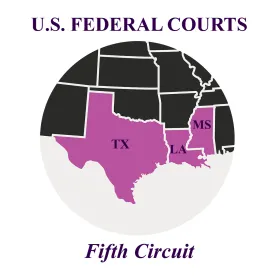In the ever-churning waters of the Countryman test for determining whether a contract is executory, the United States District Court for the Middle District of Louisiana recently dipped its toe. The question before the court was whether surety bonds issued to an oil and gas company were executory. The district court, upholding the bankruptcy court below, held that they were not. An analysis of this opinion sheds light on why the surety bonds are not executory and provides lessons for both creditors and debtors, alike.
The case, Argonaut Insurance Co. v. Falcon V, L.L.C., et al. (In re Falcon V LLC), M.D. La, No. 20-00702-BAJ-SDJ, arises out of the post-confirmation stage of a chapter 11 case. Argonaut Insurance Company (“Argonaut”) provided surety bonds to the debtor in connection with the debtor’s relationships with certain mineral rights lessors. These surety bonds provided that the debtor would pay premiums, Argonaut would provide the bonds, and if a lessor made a claim on a bond, after paying on the bond, the debtor would indemnify Argonaut. Critically, the surety bonds were irrevocable.
At the outset of the bankruptcy, the debtor sought first-day relief to continue the surety bond program, describing it as a critical service that must continue in order for the debtor to remain a going concern. The bankruptcy court approved the continuance of the program and the debtor continued to make premium payments throughout the course of the case. Argonaut filed a proof of claim in the case in which it argued that the bonds were non-assumable, non-assignable “financial accommodations.”
The debtor was able to successfully confirm a plan of reorganization, to which Argonaut did not object. One of the provisions of the plan provided that any executory contracts that were not expressly rejected were automatically assumed by the reorganized debtor. The plan included a list of executory contracts that did not include the surety bond program.
After confirmation of the plan, the debtor continued to pay premiums to Argonaut for a few months, but then stopped making payments. Argonaut responded by demanding that the reorganized debtor either obtain releases of the bonds or provide additional collateral for them, as provided for in the indemnity agreements executed in connection with the surety bond program. The reorganized debtor responded by asserting that Argonaut’s requests violated the discharge injunction under the plan. See Bankruptcy Code Sections 524 and 1141. Argonaut thereafter filed a motion with the bankruptcy court seeking a declaration that the bonds were included in the executory contracts automatically assumed by the plan. The bankruptcy court held that the surety bonds were not executory contracts and, thus, not automatically assumed by the plan. On appeal, the district court affirmed.
In affirming the bankruptcy court, the district court looked to the familiar Countryman test for determining whether the bonds were executory contracts. Under the Countryman test, a contract is executory if two prongs are satisfied: (1) performance must remain due to some extent by both parties to the contract; and (2) failure by either party to complete performance would constitute a material breach of the contract, thus excusing the other party from performing. Under this rubric, the district court had little trouble holding that the surety program failed both prongs.
First, the district court held that there were no ongoing obligations from Argonaut to the debtor. Under the program, Argonaut was obligated to post a bond upon payment of premiums by the debtor. But these bonds were posted them upon first premium payment and were thereafter irrevocable. Upon posting the bonds, however, Argonaut owed no further performance to the debtor in any capacity. At most, Argonaut had a contingent obligation to make payments to the lessors if a claim was made, and then seek indemnity from the debtor. Because the obligations flowed only one way after the bond was posted, the district court held that the first prong of the Countryman test was not met.
Second, because the bonds were irrevocable, a breach by the debtor did not create a material breach that would excuse Argonaut’s performance. If the debtor failed to pay, Argonaut was actually required to step in and pay or perform the obligations to which the bonds applied and then seek indemnity from the debtor. Because there was no relief from performance for Argonaut upon the debtor’s breach, the second prong of the Countryman test also failed.
This case presents a unique learning opportunity for both creditors and debtors. For debtors, it highlights the importance of the discharge injunction and the impact of properly tailoring a plan of reorganization. For creditors, it presents two lessons: (1) do not presuppose a contract is executory and (2) do not take inconsistent positions in a case just to get what you want at that particular moment in the case. It was Argonaut that originally argued that the bonds were not assumable. When it was forced to fall back on the automatic-assumption-under-the-plan argument, it was making a complete one-eighty from that position. Although the district court did not hold that Argonaut was estopped from taking the countervailing position, it nevertheless pointed out the inconsistency.
Argonaut did raise an interesting argument, however, that was supported by the Surety & Fidelity Association of America as amici, which may be addressed in the circuit court, should Argonaut appeal: that the Countryman test was developed for bilateral, and not tripartite, contracts and, thus, does not fit this situation. If the circuit court should take up the appeal, it is likely that this will be the primary issue to be addressed. Argonaut may not have had its last day in court on this issue, but, for now, the surety bonds are not executory.




 />i
/>i

